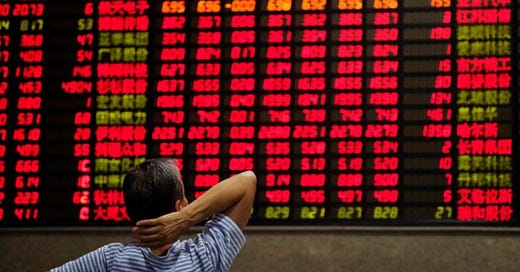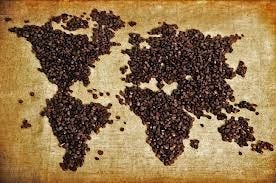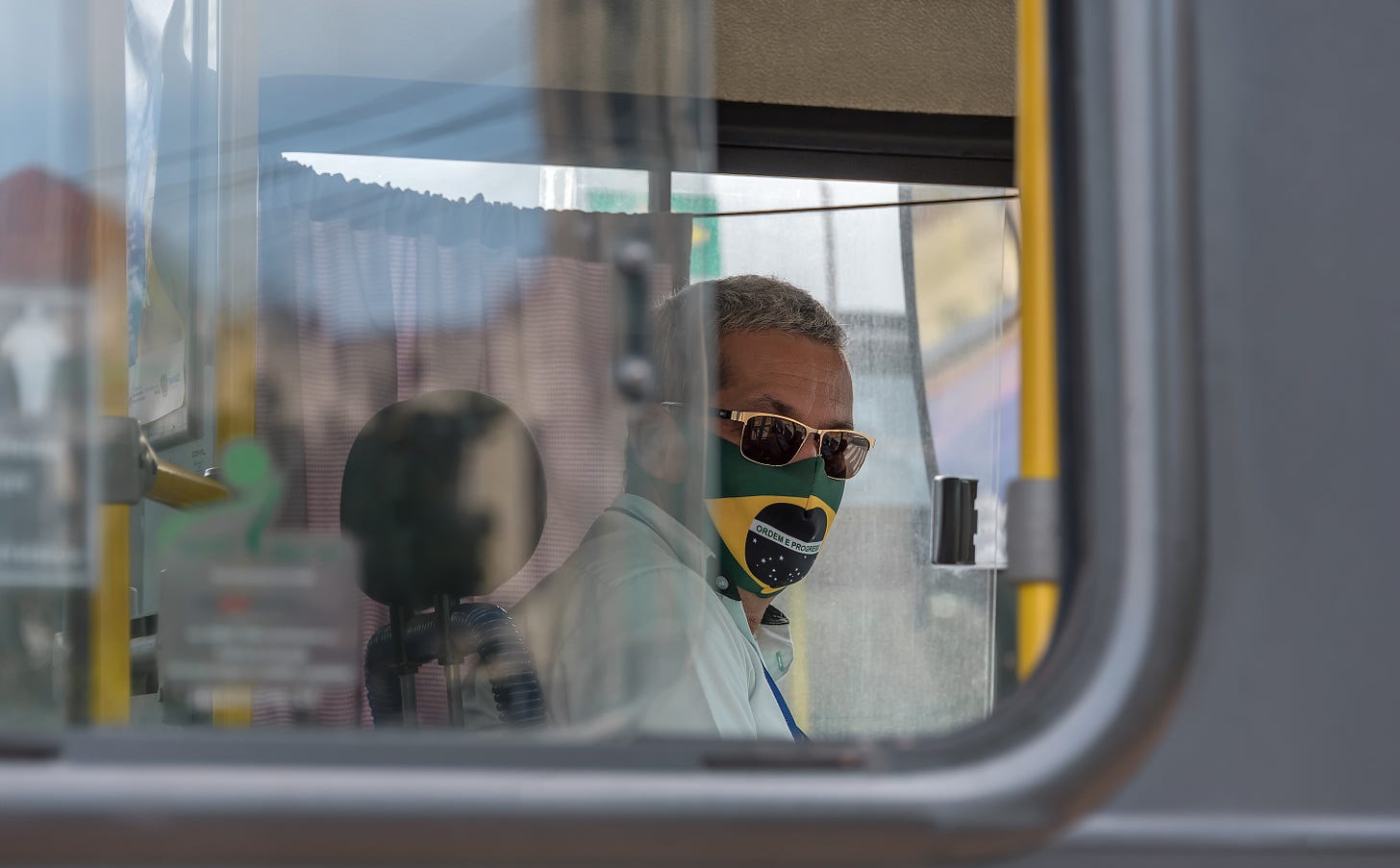Emerging Markets Daily - December 12
EM Hit by Foreign Investor Slowdown, Biden Warns Russia Again on Ukraine, Coffee Prices Soar, Rising Inflation Bites Brazil, Saudi Arabia Mining Industry Growing Fast
The Top 5 Stories Shaping Emerging Markets from Global Media - December 12
Emerging Markets Hit By Slowdown in Foreign Investment
Slowing EM Growth, Rising US Dollar and Interest Rates, Weak Pandemic Response, and Advanced Economies Recovery Contribute to Growing Wariness on EM Assets
Financial Times
“Foreign investment in emerging market stocks and bonds outside China has come to an abrupt halt over fears that many economies will not recover from the pandemic next year, their prospects worsened by the Omicron coronavirus variant and expectations of higher US interest rates.”
“In late November, non-resident flows to EM assets excluding China turned negative for the first time since the coronavirus-induced market ructions of March 2020, according to data from the Institute of International Finance. ‘We’ve seen the willingness of investors to engage with emerging markets dry up,’ said Robin Brooks, chief economist at the IIF. ‘This is not only about isolated cases like Turkey. Turkey is a symptom of something much more broad based across emerging markets, and that is a lack of growth.’”
“Many emerging economies, especially large, middle-income countries such as Brazil, South Africa and India, have also borrowed heavily on international and domestic markets to fund their pandemic response…”
“As a result, 10 major emerging markets, including Chile, Mexico, Poland and India, were at risk of a credit rating downgrade…A strengthening US dollar could destabilise the economies of countries such as Turkey, which borrow heavily in dollars, as well as the likes of Brazil, South Africa and India, which tend to borrow in their own currencies but depend largely on foreigners for inflows.” The FT reports.
Geopolitics: Biden Warns Russia of Crippling Sanctions if Ukraine Attacked
Bloomberg
“President Joe Biden warned Russia of crippling economic penalties if it attacks Ukraine and said more U.S. and NATO troops would be sent to defend allies. If Russian President Vladimir Putin ‘moves on Ukraine, the economic consequences for his economy are going to be devastating,’ Biden said Saturday in response to a reporter’s question at a news conference in Delaware.”
“The president said troops would need to be sent to defend eastern-flank NATO allies ‘where we have a sacred obligation to defend them against any attack by Russia.’ Biden’s comments underscore those he made following a phone call with Putin on Thursday in which he affirmed a commitment to Ukraine’s sovereignty and territorial integrity, along with warnings that Russian aggression would be met with unprecedented economic penalties.”
“The U.S. has shared intelligence with European allies showing Russia may be amassing as many as 175,000 troops near Ukraine in preparation for an attack. In a subsequent call with eastern European NATO allies, Biden proposed placing ‘additional capabilities’ in some of the countries.”
“On Saturday, Biden warned that if Russia attacks, ‘The rest of the world’s view of Russia would change markedly. It’ll pay a terrible price.’ The Kremlin has denied any plans to invade.” Nancy Cook reports.
BREAKING Geopolitical News: Israeli Prime Minister Naftali Bennet will visit Abu Dhabi on Monday to meet Crown Prince Sheikh Mohammed bin Zayed al-Nahyan on Monday, WSJ reports
Coffee Prices Hit Decade High, Rising More Than Any Other Commodity
Fortune
“It’s not just the caffeine that’s making the market jittery. Coffee prices rose to a decade high this week, fueled by a shipping crunch, a spike in demand, and dry weather.”
“The ICE Arabica coffee futures contract, which tracks the higher-quality bean, was sitting above $2.40 per pound midmorning in Europe—more than double what it was at the start of this year. Robusta, the world’s second major coffee contract—which tracks the more highly caffeinated, often lower quality, robusta bean—was also sitting just off 10-year highs on Wednesday, after hitting its highest point since 2011 on Tuesday.”
“Together, those contracts show a coffee market in chaos. Coffee has posted the largest price rise of any commodity in 2021—a year that has consistently broken records across markets for energy and food.”
“Although there isn’t a direct relationship between the futures markets for coffee and how much you’ll be paying for your morning coffee, prices for such staples are rising for consumers…The coffee market as a whole swung from a surplus to a deficit this year of 5.2 million bags, according to Rabobank analysis. The largest factors have likely been shipping constraints and container shortages, analysts said—and so, unable to know with certainty when and how coffee would be transported, buyers likely overbought, fueling a cycle of panic buying.” Katherine Dunn reports.
Emerging World Column
For more on our globalized world of coffee, see the Emerging World column - Globalization in a Mug
Inflation Surges in Brazil As Recession Looms Again in 2022
Wall Street Journal
“Inflation is surging in Brazil, forcing a country with one of the highest death rates from Covid-19 to grapple with the economic fallout of the pandemic. While the global economy is forecast to rebound more than 4% next year, including in countries bordering Brazil, more economists expect Brazil to remain stuck in recession during 2022 as it battles one of the world’s highest annual inflation rates of 10.7%.”
“‘Brazil really stands out—its inflation rate has risen much faster than almost any other emerging economy, and you can really see that hitting consumers,’ said William Jackson, chief emerging-markets economist at the London-based research firm Capital Economics.”
“Inflation rates from Canada to Germany have climbed to the highest level in decades as businesses and consumers emerge from lockdowns, boosting energy prices and prompting supply bottlenecks. U.S. inflation hit a 39-year high in November, the government reported Friday.”
“Brazil, which suffered punishing hyperinflation in the 1980s and 1990s, has faced a tougher struggle against its old nemesis—one that economists said could weigh on growth for at least the next year. Credit Suisse and Itaú Unibanco, one of Brazil’s biggest banks, cut their growth forecasts recently and now predict the country’s economy to contract 0.5% next year.”
“Latin America’s biggest economy was only eking out feeble growth before the pandemic hit. A sharp slump since July in the price of iron ore, one of Brazil’s top exports, has stymied recent growth. But the return of inflation is proving to be the biggest obstacle to economic recovery, economists said.” WSJ reports.
Mining Industry Grows Rapidly in Saudi Arabia
A total of 360 mining complexes operating in the Kingdom
Arab News
“Saudi Arabia sees increase in mining complexes as the Kingdom launched a huge database to channel more investments into the sector that is poised to become the third income source for state funds.”
“The number of mining complexes in Saudi Arabia has reached 360 with the Makkah region taking the lead with 72, according to data released by the Saudi Ministry of Industry and Mineral Resources on Saturday.”
“It said the number of mining facilities in the Riyadh region is 52 followed by 52 in the Madinah region while the rest of the complexes are scattered across the Kingdom, the Saudi Press Agency reported. The report also said the Kingdom has 70 reserves sites for mining activities.”
“The ministry said these mining complexes extract gold, copper, zinc, aluminum, magnesium, iron, silica, gypsum, limestone, clay and various other industrial materials. Limestone ore, bauxite and phosphate ore are among the minerals widely used in the Kingdom’s manufacturing industries.”
“In January earlier this year, the Kingdom moved to capitalize on the vast wealth hidden below ground in Saudi Arabia with the establishment of a mining fund and support for geological surveys and exploration program activities.” Arab News reports.
“To live is the rarest thing in the world. Most people exist, that is all.”
― Oscar Wilde






